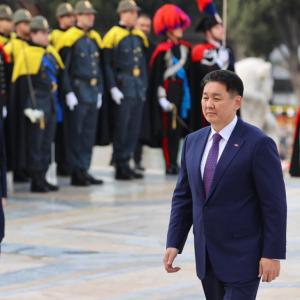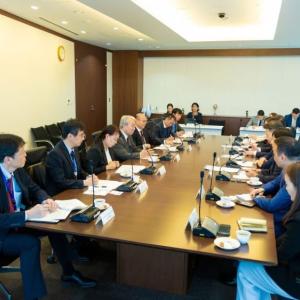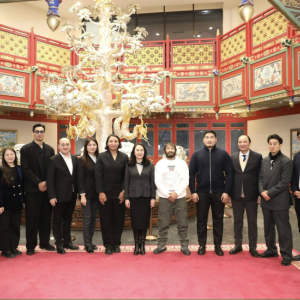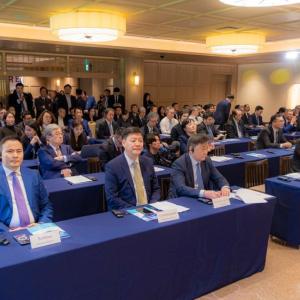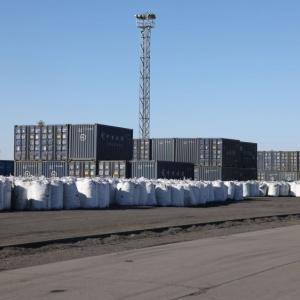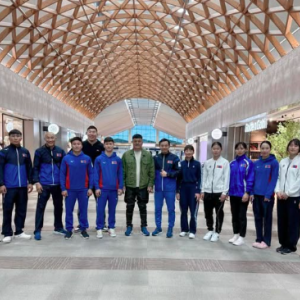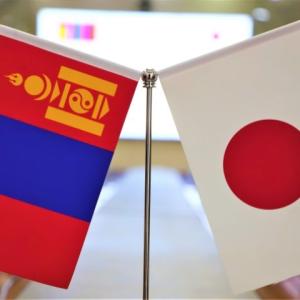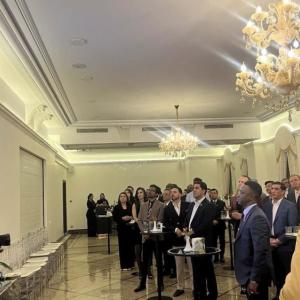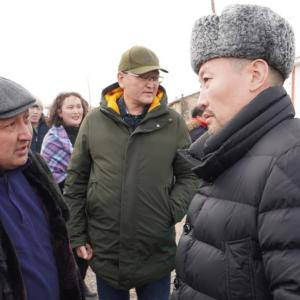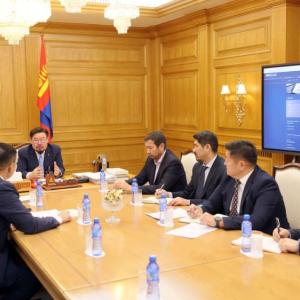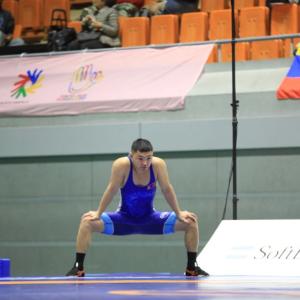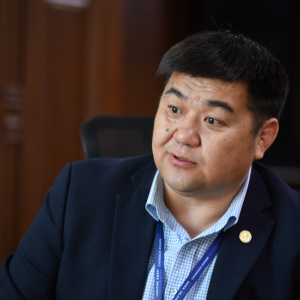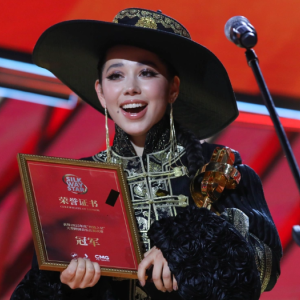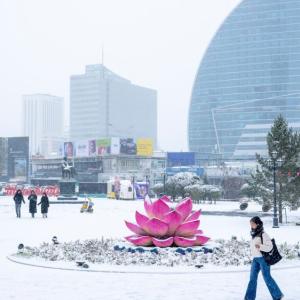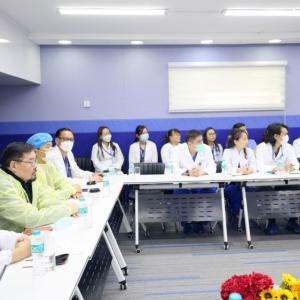Female Foreign Ministers’ Meeting in Mongolia
Politics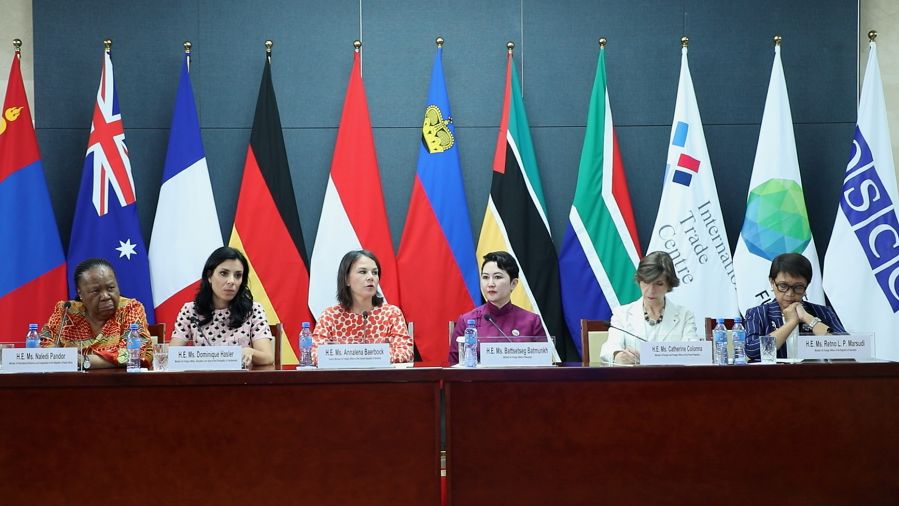
Ulaanbaatar,
July 3, 2023 /MONTSAME/. In a significant milestone for gender equality and
women’s participation in decision-making, Mongolia successfully hosted the
first-ever Female Foreign Ministers’ Meeting on June 29-30.
Countries around the world have been
progressing in advancing gender equality and prohibiting discrimination, and
women’s share in the decision-making process. Increasing women’s political
empowerment and economic participation are the areas of concern that need to be
further addressed.
It is already a proven fact that women’s
leadership brings a positive impact on all spheres of life. Accordingly,
amplifying women’s voices and promoting them to senior leading positions are
important for inspiring young women and girls around the world to achieve
greater social recognition, leadership, and participation.
To this end, the Foreign Minister of Mongolia
Ms. Battsetseg Batmunkh put forward an initiative to hold a Female Foreign
Ministers’ Meeting for the first time in Mongolia to discuss issues facing
international relations and seek possible solutions.
Accordingly, the Female Foreign Ministers’
Meeting-2023 commenced on June 29, in Ulaanbaatar, Mongolia, bringing together
female foreign ministers of countries around the world, ambassadors for gender
equality, and representatives from the UN and other international
organizations.
The first-ever Female Foreign Ministers’
Meeting in Ulaanbaatar aims to advance gender equality, human rights, and
women's participation in decision-making, with Germany and France collaborating
as organizers.
As our global community faces complex difficulties, it is becoming more evident that women's active engagement in decision-making is crucial to constructing a fairer and more inclusive future. The Meeting marks a noteworthy advancement in turning this vision into reality. By emphasizing the favorable outcomes resulting from women's participation in top-level governance, this event acts as a driving force for transformation, motivating governments, organizations, and individuals to implement tangible measures towards achieving gender equality and safeguarding human rights on a global scale. In this way, by amplifying the voices of women and fostering international cooperation, the Meeting paves the way for a future where gender equality is not just an aspiration but a reality.
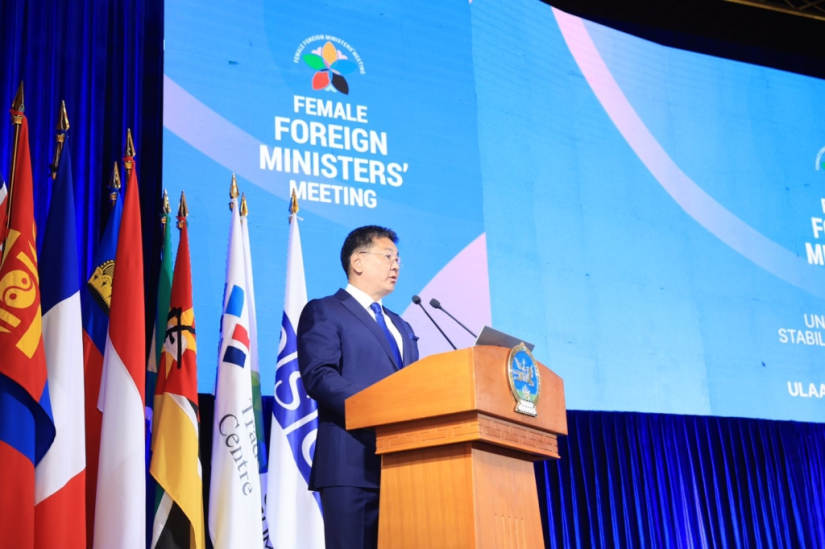
In his opening remarks, President of Mongolia
Khurelsukh Ukhnaa said, “Nowadays, the role and leadership of women leaders are
crucial to ensuring global peace and security, and achieving the sustainable
development goals. We now have less than half the time to achieve the SDGs
compared to when it was adopted and the implementation of the 5th goal of
ensuring gender equality still remains still insufficient. Gender statistics
highlight the importance of bolstering female representation at decision-making
levels, fostering robust support for women's employment, and empowering women
economically as primary areas of concern. Researchers have concluded that as
the proportion of women in national parliaments increases, the likelihood of
violence, human rights violations, wars and conflicts decreases. Hence,
fostering a world free of gender inequality stands as our shared aspiration. It
is our collective duty and responsibility to collaborate towards its
realization.
Strong partnership and close cooperation
among women leaders are critical to achieving gender equality.
I am confident that today’s Female Foreign Ministers’ Meeting will contribute to the achievement of the SDGs, in particular gender equality, highlight the importance of women’s participation and leadership in addressing global challenges, and strengthen their leadership and political will.”
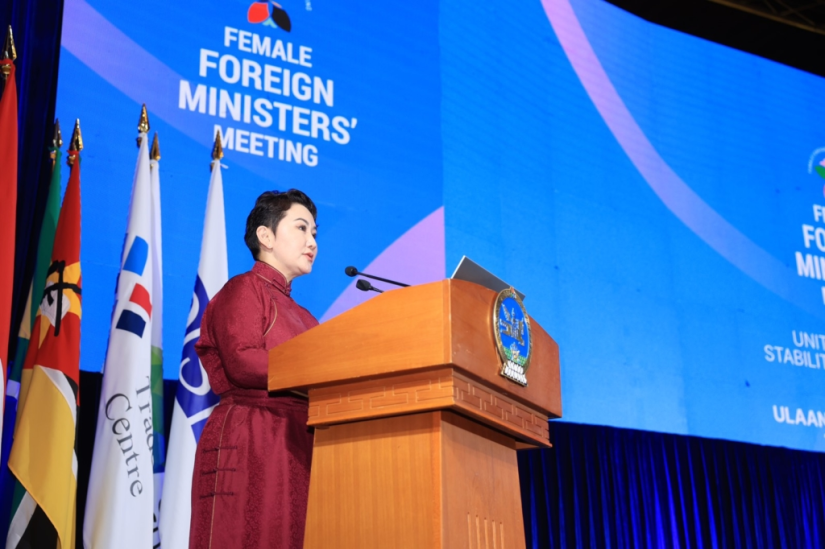
The Minister of Foreign Affairs of Mongolia
Battsetseg Batmunkh highlighted, “We have gathered
today as members of one big family, with confidence, with hope, and with a
determination that together as women-leaders we will be able to make a change,
a lasting change to improve the well-being of our peoples. We will engage in
open and sincere discussions on the most pressing issues the world is facing
today. We will deliberate on our policies and actions to ensure that our
children, youth, women and men alike, enjoy better lives, enjoy equal
opportunities and enjoy lasting peace and freedom. The empowerment of women is
not just a moral imperative. It is an essential catalyst for social, economic,
and political progress. Let us not forget that progress toward gender equality
is our inherent shared responsibility. Our governments, civil society organizations,
the private sector, and individuals must act collectively. We must work
together to dismantle the barriers that limit women’s full participation in all
spheres of life. We, as Ministers, but above all, as women,
have the heart, mind and soul to succeed in our pursuit of equal opportunities,
equal representation, and equal rights for all.
Despite the
wealth of evidence highlighting the benefits of investing in women can bring in
terms of conflict prevention, crisis response, and peace, the failure to
allocate sufficient resources and funds has been perhaps the most serious and
persistent obstacle to the implementation of the Women, Peace and Security
agenda over the past 23 years. In this regard, we welcome the decision by
Germany to allocate at least 1 million euros to the “Women Peace and
Humanitarian Fund” for 2024, and France’s decision to allocate 1 million euros
to the UNDP’s “Gender and Crisis Management Facility.
Let us all together make concerted efforts to bring about notable change, remarkable improvement in the lives of our girls and women. If there is a will, there is a way. On this cause, the most noble of all, we are destined to succeed.”
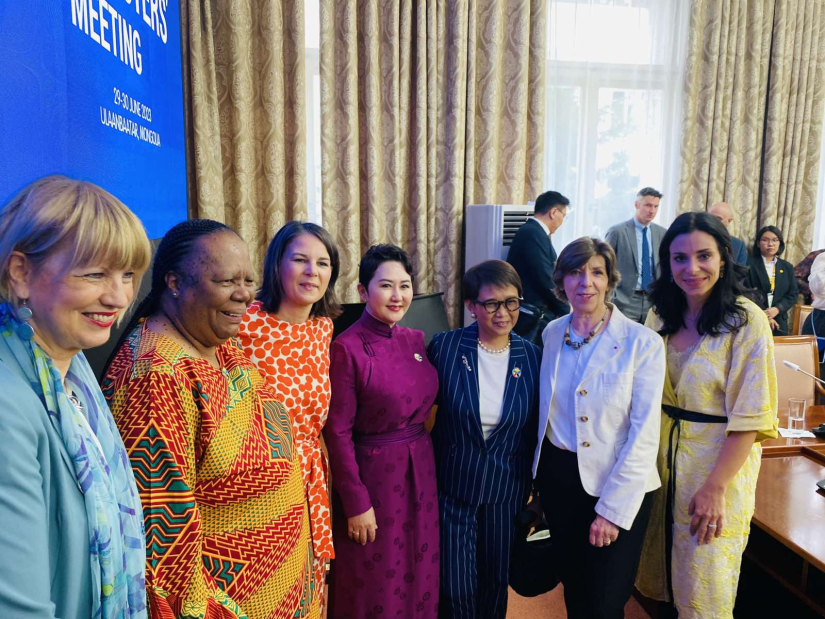
By advocating for a stable society with human rights, freedom, and equal opportunities, the Meeting aimed to highlight the positive impact of women’s involvement at the highest levels of decision-making. We can summarize the aims and significance of the Meeting in the following three aspects. These are:
Empowering Women in Global Decision-Making
The Meeting in Ulaanbaatar held great significance in the pursuit of
gender equality and the advancement of women’s rights worldwide. By gathering
female foreign ministers from around the globe, the event sought to facilitate
meaningful conversations and collaboration on topics impacting women and girls.
It aimed to break barriers and promote inclusivity and acknowledges the vital
role of diverse viewpoints and experiences in ensuring effective
decision-making and promoting sustainable development.
International Cooperation for Gender Equality
The Meeting was a result of collaborative efforts between Mongolia,
Germany and France. These nations recognize the importance of international
cooperation in addressing gender equality and women’s empowerment. By organizing
this historic gathering, they aimed to encourage other countries to prioritize
women’s rights in their foreign policies and promote gender-responsive
approaches to global challenges. In this regard, the Meeting signified a
unified commitment towards advancing gender equality on a global scale.
Addressing Key Global Challenges through
Female Leadership
The Female Foreign Ministers' Meeting provided a platform for
comprehensive discussions on critical global issues. The year 2022 has
witnessed unprecedented geopolitical tensions that brought not only added
complexity to addressing the challenges facing the world community, but also
exacerbated the existing challenges. Threats such as climate change, natural
disasters and the COVID-19 pandemic are on the rise, requiring greater
cooperation among countries on the international stage as no country can
address them individually. All countries, especially small and poor ones,
suffer the most from the negative consequences, including rising unemployment and
poverty and political instability around the globe. They also pose major risks
that could undermine global peace and security and the hitherto achievements
towards the 2030 Sustainable Development Goals (SDGs). Many consequences of
climate change and the COVID-19 pandemic have weakened food systems
vulnerabilities, further exacerbating the existing inequalities. This is
especially evident in countries like Mongolia, which remain highly vulnerable
to food prices and foreign exchange volatility. Therefore, as the host country,
Mongolia proposed the following three topics for the first day’s discussion:
- Role of women in promoting peace and security,
- Climate change, and
- Food security.
Recognizing that women’s perspectives and expertise are invaluable in
these areas, the Meeting aimed to harness their leadership potential to drive
meaningful change.
The second day of the Meeting continued with cultural events exclusively
prepared for the participants, such as visiting the "Chinggis Khaan"
museum and experienced the "Mini Naadam" Festival. Moreover, Heads of
Delegations visited the Session of the State Great Khural (Parliament) of
Mongolia and engaged in meeting with the Chairman of the State Great Khural G.
Zandanshatar.
The consensus and solidarity of Female Foreign Ministers will serve as a great impetus for promoting multilateral cooperation to address global challenges. Mongolia also hopes that the Meeting would benefit shaping pro-women foreign policy in our greater neighborhood in Asia and believes that our initiative will contribute to the efforts of other countries pursuing a feminist foreign policy.
As an outcome of the Meeting, the "Ulaanbaatar Declaration" was issued on June 30.
 Ulaanbaatar
Ulaanbaatar

























